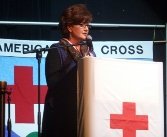Bad combination: concussions and obesity
NEWPORT BEACH, Calif. - Retired NFL players who have suffered concussions and are overweight are at increased risk of cognitive impairment and blood flow deficits in specific parts of the brain, according to a new study published in Translational Psychiatry.
Psychiatrist and brain-imaging researcher Daniel G. Amen, MD, founder of the Amen Clinics, Inc. (ACI) in Newport Beach, recently completed the first study to determine if there is a link between obesity and cognitive impairment among football players.
According to Dr. Amen’s work, obesity among football players is a risk factor for neurodegenerative disease and has been shown to adversely affect cognitive function. He also said professional athletes who participate in sports which expose them to repetitive concussions, may be at heightened risk for cognitive impairment.
In this study, published online this week in Translational Psychiatry, Dr. Amen’s team investigated the effects of being overweight, as measured by waist-to-height ratio (WHtR) on brain blood flow using brain SPECT (single-photon emission computed tomography) imaging in 38 healthy weight and 38 overweight active and retired National Football League players.
The results showed that overweight players had significant levels of decreased blood flow in the attention, reasoning and judgment parts of the brain. In addition, overweight athletes showed impairments in attention and memory on cognitive tests.
Dr. Amen said this is the 12th scientific study to show a connection between obesity and decreased brain size or function--but the first to examine football players.
“I affectionately call this ‘The Dinosaur Syndrome,” said Dr. Amen who has the largest database of brain scans on football players. “Big body. Little brain. Become extinct.”
These findings suggest that a weight management and supplementation program may be critical to the health of athletes who have been exposed to mild brain trauma during their careers.
“Obesity is a critical problem to address for brain health reasons, as well as all of the other reasons we know about, such as heart disease, diabetes, hypertension and cancer,” he said. “In previous published research studies, we’ve shown playing football can lead to brain-health problems, including dementia, memory loss, aggression, and depression. Symptoms may appear early, or decades after injury.
“But there is hope,” said Dr. Amen. “In another study we published last year, we were able to demonstrate high levels of improvement in brain health and symptoms such as memory and mood, when players engaged in a brain healthy program that included weight loss, if needed, simple supplements, exercise and a proper diet. That was the most exciting part of the study. We demonstrated that even if you have been bad to your brain, on the right program you can often reverse the damage and improve your life.”
The Amen Clinics have performed more than 70,000 brain SPECT scans on patients from 90 countries. They have also treated NHL players who have many of the same issues as NFL players.
Daniel G. Amen, MD founded the Amen Clinics, Inc. (ACI) in 1989 and now has offices in Newport Beach, San Francisco, Seattle, and Washington D.C. ACI specializes in using detailed clinical histories, brain imaging, and lab testing for innovative diagnosis and treatment for a wide variety of problems, including weight issues, ADD, anxiety, depression, autistic spectrum disorders, and memory problems. Dr. Amen is a physician, child and adult psychiatrist, brain-imaging specialist, and Distinguished Fellow of the American Psychiatric Association. Dr. Amen has also authored 28 books, including the New York Times bestsellers, “Change Your Brain, Change Your Body” and “The Amen Solution.” His new book, “Use Your Brain to Change Your Age” will be released February 14th by Crown Archetype.
Source: PRWeb 1/17/2012
Questions/comments? contact Jean Rickerson at This e-mail address is being protected from spambots. You need JavaScript enabled to view it.



